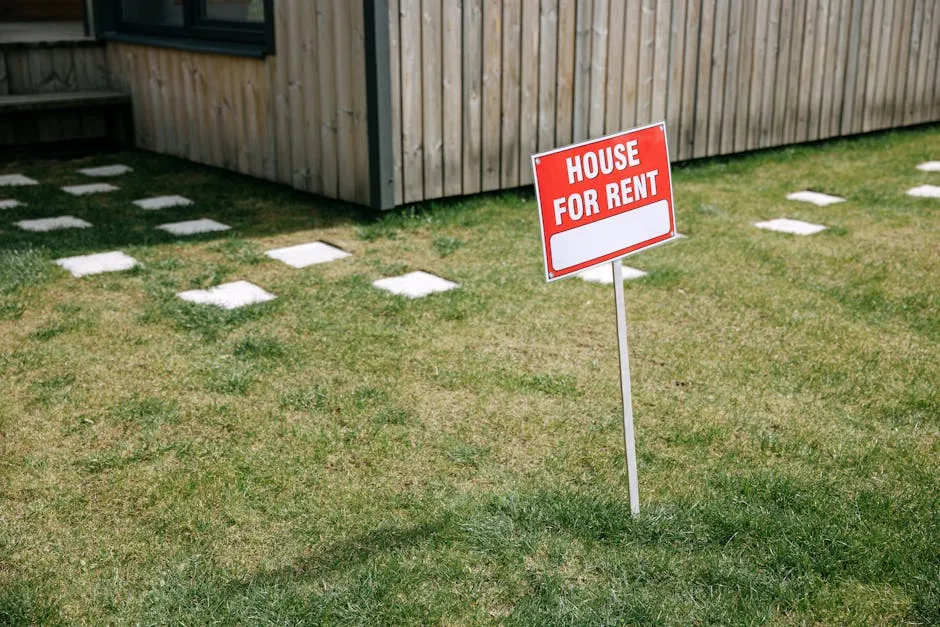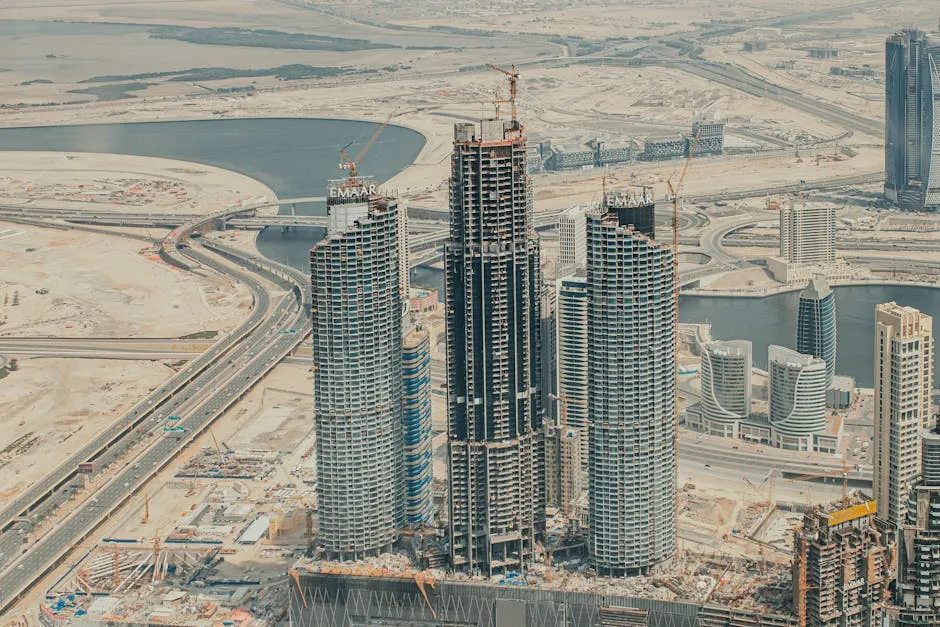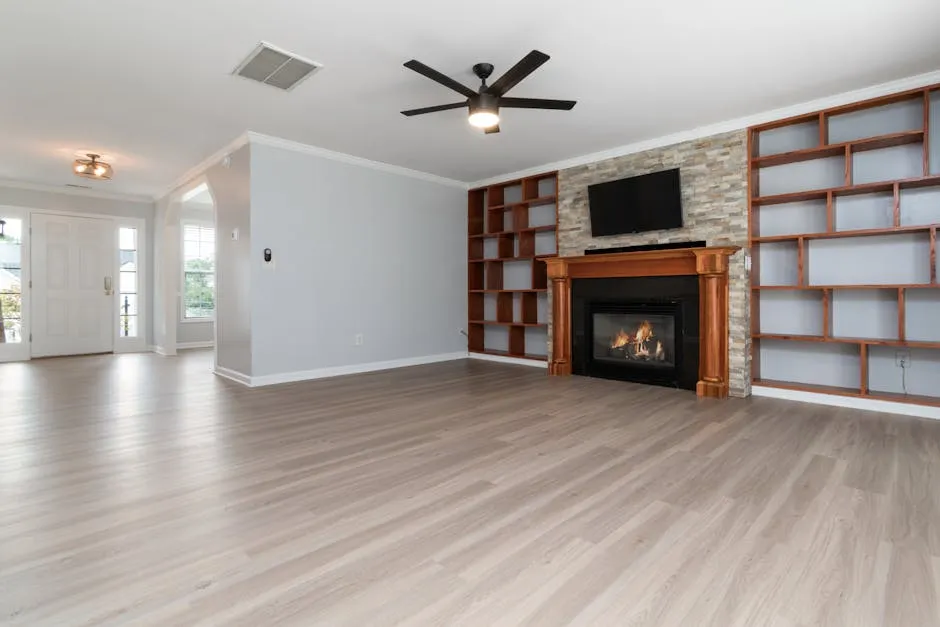Introduction
Dubai’s real estate market is booming. Many see it as a golden opportunity to become landlords. Renting out properties can generate impressive profits and provide passive income. However, it’s essential to familiarize yourself with local laws and regulations to ensure a smooth experience.
Summary and Overview
Becoming a landlord in Dubai involves several key steps. First, you need to select the right property that meets market demand. Next, understanding legal requirements is crucial for compliance. After that, tenant management plays a vital role in maintaining occupancy and satisfaction. Finally, effective property marketing is essential to attract potential renters.
Professional assistance can greatly ease the process. With high returns on investment, Dubai appeals to both local and international tenants. As a landlord, you can maximize your profits while enjoying the advantages of a thriving market.

Steps to Becoming a Landlord in Dubai
Understanding the Dubai Real Estate Market
The Dubai property market is dynamic and constantly evolving. Current trends indicate a significant rise in rental prices, particularly in high-demand areas. According to recent statistics, rental yields can reach impressive heights, often exceeding 7%. Popular neighborhoods for investment include Dubai Marina, Downtown Dubai, and Jumeirah Village Circle. These areas attract both expatriates and tourists, ensuring a steady stream of potential tenants. For a comprehensive guide on rental yields in various neighborhoods, check out this resource.
Understanding rental yields can significantly impact your investment decisions. Learn more about rental yields in Dubai neighborhoods.
Understanding these rental trends and the overall Dubai property market landscape is crucial for any aspiring landlord. With the right knowledge, you can make informed decisions that enhance your investment strategy and increase profitability.

Legal Requirements for Landlords
Becoming a landlord in Dubai involves adhering to specific legal requirements. One crucial step is the RERA registration process. RERA, or the Real Estate Regulatory Agency, oversees real estate activities in Dubai. Registering your property with RERA helps ensure compliance with local laws.
You will need several essential documents for this registration. The Title Deed proves ownership of the property. Additionally, your passport and Emirates ID are necessary for identification. If you’re a non-resident, you may need a copy of your visa as well. All these documents help establish your legitimacy as a landlord.
Understanding Dubai’s landlord-tenant laws is vital. These laws protect both landlords and tenants, ensuring fair practices. For example, the law outlines your rights regarding rent increases and eviction procedures. It also specifies tenant responsibilities for property maintenance. Being aware of these regulations will help you avoid potential disputes.
In summary, meeting the RERA registration requirements and understanding landlord-tenant laws is essential. This knowledge will not only safeguard your investment but also contribute to a positive rental experience. If you need assistance navigating these legalities, Ome Real Estate is here to help.

Choosing the Right Type of Rental Agreement
When becoming a landlord, you must decide between two types of rental agreements: short-term and long-term. Short-term rentals, often popular with tourists, allow flexibility and potentially higher rates. They suit properties in prime locations, like Dubai Marina or Downtown Dubai. However, managing short-term rentals can be demanding due to frequent tenant turnover.
On the other hand, long-term rentals provide stability and less management hassle. These contracts typically last one year or more, ensuring a steady income. They may be more suitable for properties in residential areas, where tenants seek stability. For insights into the best places for long-term rentals in Dubai, refer to this guide.
Choosing the right type of rental agreement is essential for your investment strategy. Explore the best places for long-term rentals in Dubai.
To determine the best option, consider your property type and location. Do you want to cater to tourists or long-term residents? This decision significantly impacts your rental strategy and potential income. Both options have their pros and cons, so weigh them carefully.

Preparing Your Property for Rent
Preparing your property for rent is crucial for attracting quality tenants. Start by assessing necessary renovations and cleaning. Fix any plumbing or electrical issues, and consider a fresh coat of paint to enhance appeal. A clean, well-maintained property signals to potential tenants that you care.
Staging your property can also make a significant difference. Consider hiring a professional staging company to showcase your property’s best features. High-quality photographs are essential for online listings, as they draw interest and help your property stand out.
If managing the rental process seems overwhelming, think about hiring property management services. These professionals can handle everything from tenant screening to maintenance issues, allowing you to focus on other aspects of your life or investment. Ome Real Estate offers comprehensive property management services, ensuring your rental experience is smooth and successful.

Setting the Right Rental Price
Determining the right rental price is crucial for attracting tenants. A Comparative Market Analysis (CMA) is an effective way to evaluate rental prices in your area. Start by researching similar properties nearby. Look at their rental prices, amenities, and occupancy rates. This analysis helps you set a competitive price that appeals to potential tenants without undervaluing your property.
Competitive pricing is essential in Dubai’s bustling rental market. If your price is too high, you risk extended vacancy periods. Conversely, pricing too low can lead to lost income. Striking the right balance can maximize your rental yield.
Additionally, be aware of rent increase regulations. In Dubai, landlords must give tenants a 90-day notice before any rent hike. The maximum allowable increase depends on the current rent compared to the market rate. For instance, if your rental price is significantly below market value, you can increase it by a higher percentage. Understanding these regulations will help you navigate pricing strategies effectively.

Marketing Your Property
Marketing your property effectively is key to attracting tenants. Start with online platforms like property portals, social media, and local listings. These channels reach a broad audience, increasing your chances of finding the right tenant quickly.
Moreover, high-quality visuals are vital. Invest in professional photography to showcase your property. Clear, engaging descriptions can highlight its best features. This approach not only draws interest but also sets the right expectations for potential renters.
Don’t overlook traditional advertising methods, such as flyers or local newspapers. Combining online and offline strategies can help you cast a wider net. Remember, the goal is to make your property stand out in a competitive market.

Tenant Screening and Management
Screening potential tenants is a critical step in becoming a successful landlord. Start by conducting background checks. Verify their employment status and check their credit history. These steps help assess their ability to pay rent consistently.
Request references from previous landlords. This can provide insights into their reliability and behavior as tenants. Additionally, consider asking for a Certificate of Good Conduct to ensure they have a clean record.
Clear communication is vital in tenant management. Establish expectations from the start, including maintenance responsibilities and payment schedules. A well-drafted rental agreement can help outline these terms clearly, reducing misunderstandings later on.
Managing your property effectively also involves regular check-ins and addressing maintenance issues promptly. Building a positive relationship with your tenants can lead to longer tenancies and a more successful rental experience. If you need help with tenant management, consider reaching out to Ome Real Estate for professional assistance.

Understanding Your Rights and Responsibilities as a Landlord
Becoming a landlord in Dubai comes with specific rights and responsibilities. First, it’s essential to understand your rights under Dubai’s rental laws. As a landlord, you have the right to receive rent on time, evict tenants for non-payment, and maintain your property. You can also raise the rent, given you provide a 90-day notice before the contract renewal.
However, with rights come responsibilities. You must ensure your property is safe and habitable. Handling major repairs and maintenance is your duty, while minor issues can be the tenant’s responsibility. Clear communication about maintenance obligations can prevent misunderstandings.
Failure to adhere to landlord-tenant laws may lead to severe consequences. Violating these laws can result in disputes, fines, or even legal action. It’s crucial to stay informed about your rights and obligations to navigate this complex landscape smoothly. If you need assistance understanding these laws, Ome Real Estate can provide expert guidance.

Conclusion
In summary, becoming a successful landlord in Dubai involves understanding local laws and maintaining strong tenant relationships. Always seek professional advice to keep up with market trends. The potential for financial growth through property investments in Dubai is significant. With the right approach, you can enjoy a rewarding experience as a landlord while maximizing your investment returns.
FAQs
What are the key documents required to become a landlord in Dubai?
To become a landlord in Dubai, you’ll need several important documents. First, the Title Deed proves your ownership of the property. You also need your passport for identification purposes. If you’re using a property management service, a property management agreement may be required as well. Ensuring you have these documents ready will help streamline your registration process with RERA.
How can I determine the right rental price for my property?
Setting the right rental price is essential. Start with a Comparative Market Analysis (CMA) to assess similar properties in your area. Consider consulting real estate experts to get insights into current market trends. A well-researched price can attract more potential tenants and reduce vacancy periods.
What are the benefits of hiring a property management company?
Hiring a property management company can simplify your landlord experience significantly. These professionals handle everything from marketing your property to tenant screening. They ensure timely rent collection and maintenance issues are addressed promptly, enhancing tenant satisfaction and protecting your investment.
What should I do if a tenant stops paying rent?
If a tenant stops paying rent, there are legal steps you can take. Initially, communicate with the tenant to understand their situation. If the issue persists, you can file a complaint with the Rental Dispute Settlement Centre in Dubai. This center will help resolve disputes and enforce your rights as a landlord.
Are there any restrictions on foreign investors becoming landlords in Dubai?
Foreign investors can become landlords in Dubai, but there are specific regulations to follow. Generally, you can purchase property in designated areas without restrictions. However, ensure you comply with all local laws, including registration with RERA and understanding ownership regulations for foreign nationals.
How do I handle disputes with tenants?
Handling disputes with tenants requires a clear understanding of local laws. Begin by addressing the issue directly with the tenant to seek resolution. If that fails, you may pursue mediation through the Rental Dispute Centre. This legal avenue can help resolve disagreements efficiently and fairly.
Please let us know what you think about our content by leaving a comment down below!
Thank you for reading till here 🙂
All images from Pexels

